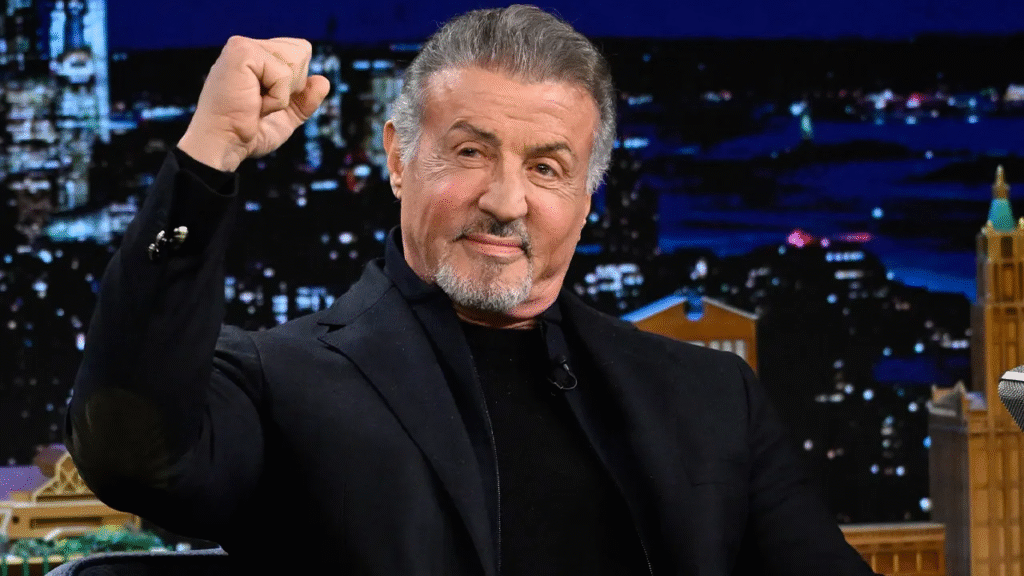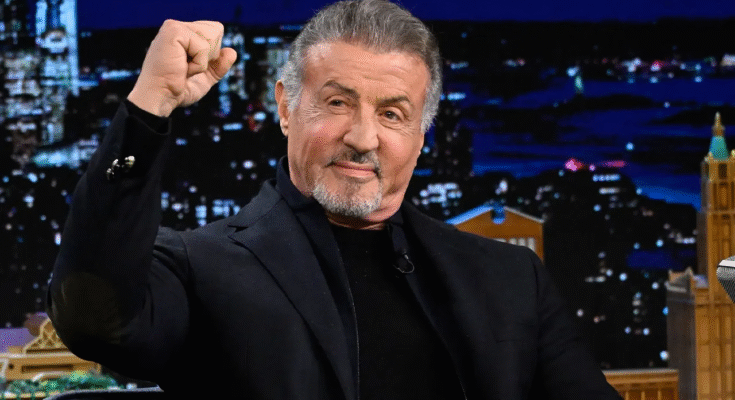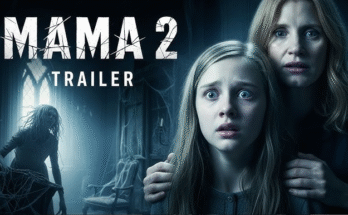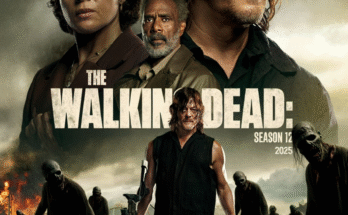Sylvester Stallone — the name that once defined Hollywood’s golden era of muscle-bound heroes — continues to dominate the screen even as he moves well past his seventies. From Rocky to Rambo, Stallone became a symbol of raw strength and determination, a cinematic fighter who inspired generations. Now, at 77, his legacy still burns bright in Expendables 4, proving that age has done little to dull his relentless spirit.

In the latest installment of The Expendables, Stallone returns as the grizzled mercenary Barney Ross — gray-haired, sharp-eyed, and still carrying the signature black beret of his battle-hardened team. Though his screen time is shorter this round, every moment he appears feels like a reminder of his enduring command over the action genre. From piloting combat aircraft to roaring across enemy lines on a modified motorcycle, he embodies the grit that first made him a legend.
The film takes audiences across a sweeping landscape of chaos — from American cities to abandoned chemical plants in Libya, and finally to the open sea, where a nuclear bomb threatens catastrophe. Critics may argue that Expendables 4 suffers from uneven storytelling, but as The Independent noted, Stallone’s presence alone stands as a testament to his longevity and unbreakable bond with the action-hero archetype.

Yet behind the larger-than-life persona lies a turbulent past. During a 2021 conversation with his daughters Sophie and Sistine, Stallone revealed stories from his youth that stunned fans. As a child, he was labeled a juvenile delinquent, expelled from school after school, and banned from Pennsylvania’s entire education system. Teachers once predicted he was “most likely to end up in the electric chair.”
Struggling with attention disorders and a rebellious streak, young Stallone found himself drifting on Philadelphia’s rough streets, cigarettes in hand and no direction in sight. He still keeps one of his failing report cards — not as shame, but as proof of resilience. “It shows that you can flunk every subject and still turn out pretty well,” he joked, a reflection of how far he had come from those lost days.
Ironically, his passion for storytelling and adventure began abroad, at a prep school in Switzerland, where he first discovered acting. Influenced by fantasy epics like The 7th Voyage of Sinbad, he longed to escape reality and create worlds of his own. That dream would later crystallize into Rocky — the underdog boxer who rises from obscurity to greatness — a story that mirrored Stallone’s own life.

His path to stardom was anything but easy. In the newly published book The Last Action Heroes by Nick de Semlyen, Stallone is named one of Hollywood’s most enduring action icons. Yet, his ascent began with an uphill climb. When he wrote and starred in Rocky (1976), few believed in him. The film, made on a modest budget, went on to become a global sensation, earning Oscar nominations for Best Actor and Best Original Screenplay — achievements that catapulted Stallone from obscurity to legend.
Just a few years later, he transformed again — this time into John Rambo, the haunted Vietnam veteran in First Blood. Stallone was reportedly the eleventh choice for the role, after a parade of stars had turned it down. But what others saw as a violent misfit, Stallone shaped into a tragic hero — a misunderstood warrior fighting his own inner demons. His performance gave the character emotional depth and empathy, setting a new standard for action heroes.
Through the 1980s, Stallone’s films came to define the Reagan-era ideal of strength and patriotism. Even President Ronald Reagan publicly praised him, calling him a personal favorite. As Rocky and Rambo conquered the box office, Stallone’s name became synonymous with determination, courage, and cinematic power. Alongside peers like Arnold Schwarzenegger, Bruce Willis, and Chuck Norris, he shaped what it meant to be an action star.

When Hollywood shifted toward technology-driven spectacles — Marvel’s superheroes and CGI-powered adventures — Stallone still found ways to adapt without losing authenticity. His Expendables franchise celebrated old-school heroism, while appearances in Guardians of the Galaxy Vol. 2 and The Suicide Squad introduced him to a new generation of fans. Few actors could bridge those worlds so effortlessly.
Now, with Expendables 4 and a forthcoming Netflix documentary about his life, Stallone stands in a late-career renaissance — the rare star who remains both a symbol of nostalgia and a force of the present. For fans of old-school action, he isn’t just a survivor of Hollywood’s toughest battles; he’s the last great warrior of a bygone era. Decades after Rocky first shouted, “Yo, Adrian!”, Sylvester Stallone still embodies the undying will to fight — a living reminder that heroes may age, but legends never fade.




